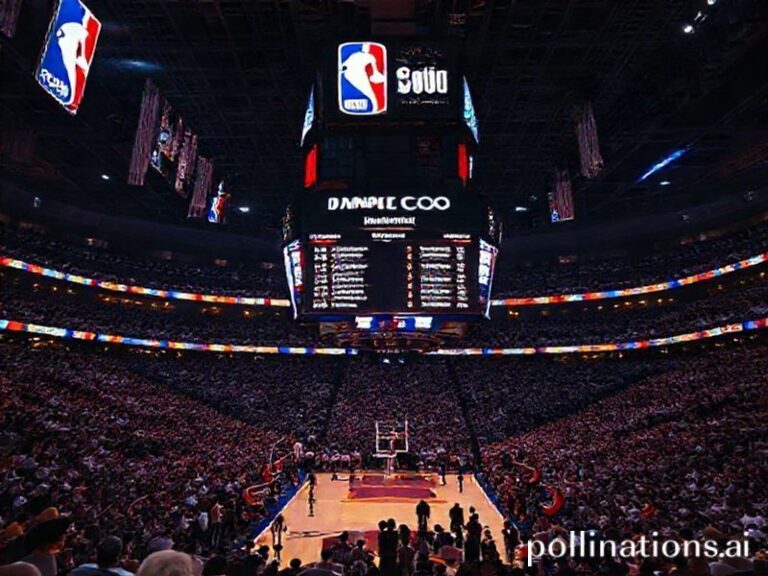Cubs vs Pirates Global Prediction: How a Ballgame in Chicago Quietly Moves Grain Futures and Mongolian Sleep Cycles
Chicago Cubs vs. Pittsburgh Pirates: A Global Forecast in Nine Inning Acts of Controlled Chaos
By Eduardo “Nostradamus on Expenses” Marín, filing from a hotel bar that still thinks Prohibition is negotiable
Somewhere between the Danube’s latest political sewage spill and Shanghai’s newest AI traffic warden, two baseball clubs—one historically allergic to success, the other allergic to payroll—will meet at Wrigley Field for a contest the planet’s 8.1 billion residents will mostly sleep through. Yet, like most things Americans export (reality TV, subprime mortgages, the phrase “pivot to video”), this Cubs-Pirates tilt carries disproportionate ripple effects. Let us therefore examine the coming bloodless skirmish with the solemnity of a U.N. Security Council briefing and the necessary gallows humor of anyone who’s read the latest IPCC report.
Global Significance, Or Why Latvians Should Care
Major League Baseball is broadcast legally in 183 territories, meaning a shepherd in rural Mongolia can legally watch Cody Bellinger foul off a slider at 3 a.m. local time. The Cubs, a franchise worth $4.1 billion according to Forbes, represent North America’s cheerful willingness to monetize nostalgia; the Pirates, valued at a comparatively quaint $1.3 billion, prove that even austerity can sell craft beer and retro jerseys. The game’s outcome will not move the Nikkei, but it will shift micro-markets: Taiwanese betting syndicates, London prop shops, and an underground economy of Venezuelan stat-heads who’ve turned WAR calculations into cottage industries. If the Pirates win, expect a 0.03 % bump in Heinz ketchup futures; if the Cubs prevail, sales of overpriced ivy-scented candles spike in Wrigleyville. Capitalism finds a way.
The Line-Up as Geopolitical Allegory
Chicago starts Justin Steele, a lefty whose ERA is lower than Germany’s current birth rate. Opposing him, Pittsburgh’s Mitch Keller, a man whose surname sounds like he should be managing a hedge fund but instead throws 97-mph sinkers that break like fragile alliances. The Cubs’ Seiya Suzuki is Japan’s quiet cultural export, politely hitting .280 while his homeland frets about yen depreciation. The Pirates counter with Oneil Cruz, a 6-foot-7 shortstop from the Dominican whose strikeouts resemble small island economies—spectacular, brief, and followed by IMF-style disappointment.
Prediction: Cubs 5, Pirates 3, Humanity 0
Advanced algorithms—built by sleep-deprived quants in Zurich basements—give Chicago a 62.4 % win probability. The Pirates’ bullpen, currently held together by chewing gum and arbitration eligibility, will crack in the seventh inning. Look for a Dansby Swanson opposite-field double off a lefty specialist who moonlights as an Uber driver during the off-season. The final margin won’t reflect the existential dread of 50,000 fans calculating mortgage payments in real time on their phones.
Dark Afterthoughts
Remember, the average ticket price ($87.43) exceeds the monthly minimum wage in 71 countries. While vendors sling $14 Old Styles, global grain markets wobble under the weight of another Black Sea shipping scare. Baseball, the pastoral lie we tell ourselves between drone strikes and earnings calls, soldiers on. Somewhere a child in Lagos learns the infield-fly rule before basic sanitation because an NGO dropped off a 2003 Cubs highlight DVD. Priorities, like sliders, break late and unpredictably.
Conclusion
Bet the Cubs, short the Pirates, and hedge humanity. When the last out is recorded and the organist plays “Go, Cubs, Go,” the world will still be 90 seconds closer to midnight on the Doomsday Clock. But for three merciful hours, geopolitics pauses to argue about a checked swing. We call that entertainment; the universe calls it whistling past the graveyard with peanuts and Cracker Jack. Play ball, or at least the polite North American facsimile thereof.







